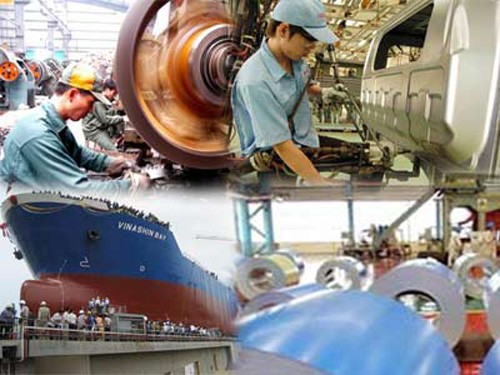(VOVWORLD) - According to a plan approved by the Prime Minister, Vietnam must equitize 127 state-owned enterprises (SOE) during the 2017-2020 period. But to date, less than one third of the enterprises have been equitized. The question now is what to do to complete the plan on time?
 (Photo: thoibaotaichinhvietnam.vn) (Photo: thoibaotaichinhvietnam.vn) |
The Ministry of Finance said only 24 SOEs were equitized in 2017 and 23 businesses were equitized last year. 80 more SOEs must be equitized by next year. That means 10 enterprises must be equitized in each quarter of 2019 and 2020.
The number of enterprises to be equitized in Ho Chi Minh City account for 60% of the planned total, but in the first 5 months of this year, no enterprises were equitized.
The HCMC People's Committee has asked the Government to allow its equitization progress to be delayed by 20 years until 2020.
Economists say most of the enterprises to be equitized in Ho Chi Minh City are major interdisciplinary businesses with complex structures and many different types of assets.
Economist Huynh The Du said the State asset identification in these SOEs is the first bottleneck to be removed. Equitization is a complicated process, Du said, and it’s tempting to try to evade responsibility or delay the equitization.
Vietnam lacks policies to motivate the process, even though HCMC is being allowed to keep the state divestment capital for its budget.
An audit of the valuation process for SOEs managed by the Hanoi People’s Committee revealed mistakes in the valuation of land use and land leases and capital contributions for joint ventures, and poor monitoring of the proceeds from IPOs and divestment. These mistakes need to be resolved for any future equitization.
Do Van Sinh, a member of the National Assembly Economic Committee, said Vietnam has created a legal framework for the equitization process but hasn’t specified all the details.
“The SOE equitization plan has multiple problems. The question is whether or not the information is transparent for investors and can meet their expectations. For example, an SOE plans to sell 30% of its shares in the initial public offering but its investor wants to buy 51%. The government should re-assess the reasons leading to the deferred process and propose solutions,” said Sinh.
The State Capital Investment Corporation (SCIC) has proposed a number of solutions to make state divestment go smoothly. One is to implement Decree 32 on the transfer of state capital investment in enterprises, determining the value of land use rights (rent paid annually) and the value of intellectual property and other invisible assets like cultural and historical values. It has also called for the promulgation of a sample regulation for the offering of shares and instructions for book building, the process by which an underwriter attempts to determine the price of the offered IPO.